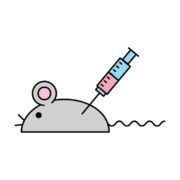5 July 2019
We tend to think of most cancers as a single cell line, or clone – one normal cell develops a mutation, and that abnormal cell continues to divide. However, many tumors exhibit what is termed “heterogeneity” – meaning they are composed of cells with different genetic makeups. These cells can have different behaviors, growth patterns and response to treatment.
A study recently published in the Annals of Surgical Oncology looked at the association between tumor heterogeneity and immune cells. They found that tumors with high heterogeneity (more diverse cell population) were associated with worse overall survival. They also found that these tumors were associated with lower levels of anti-tumor T-cells (an immune system cell) and “immune checkpoint molecules”, and had a higher percentage of immunosuppressive T-cells. Their finding was noted primarily in estrogen-receptor positive (ER+) breast cancers.
Testing for different cell populations within a tumor is not routinely performed at this point in time. In addition, the authors noted that it is up for debate (and further research) which comes first – do the diverse tumor cell populations attract immune cells, or do the immune cells act to control tumor cell diversity. They noted that additional work is needed to better understand the changes that influence tumor cell heterogeneity and to develop methods to prevent it from occurring. This is just one of the reasons why a “cure” for cancer is not that simple. Cancer – even a single tumor in one patient – is not just one disease.





